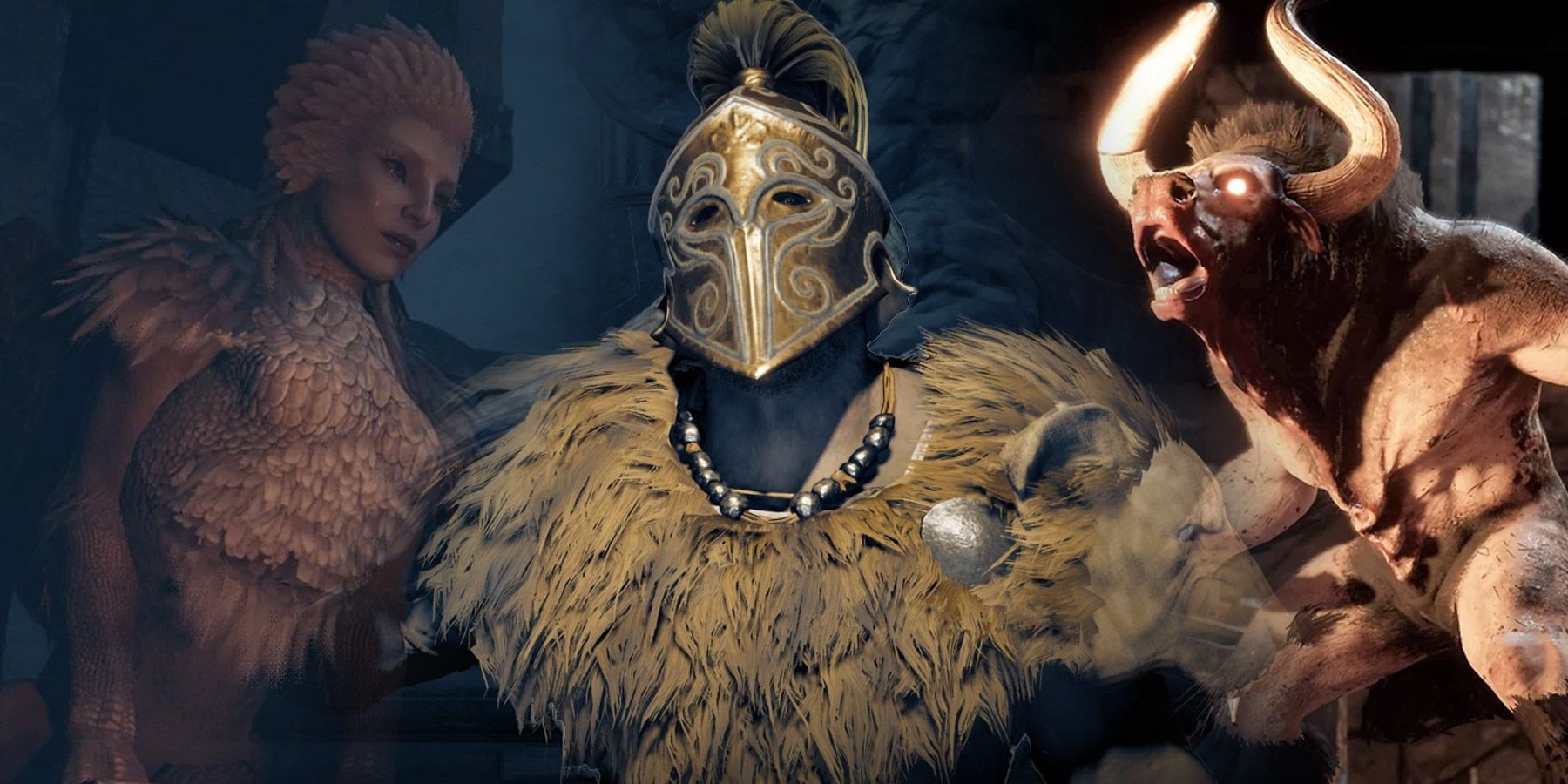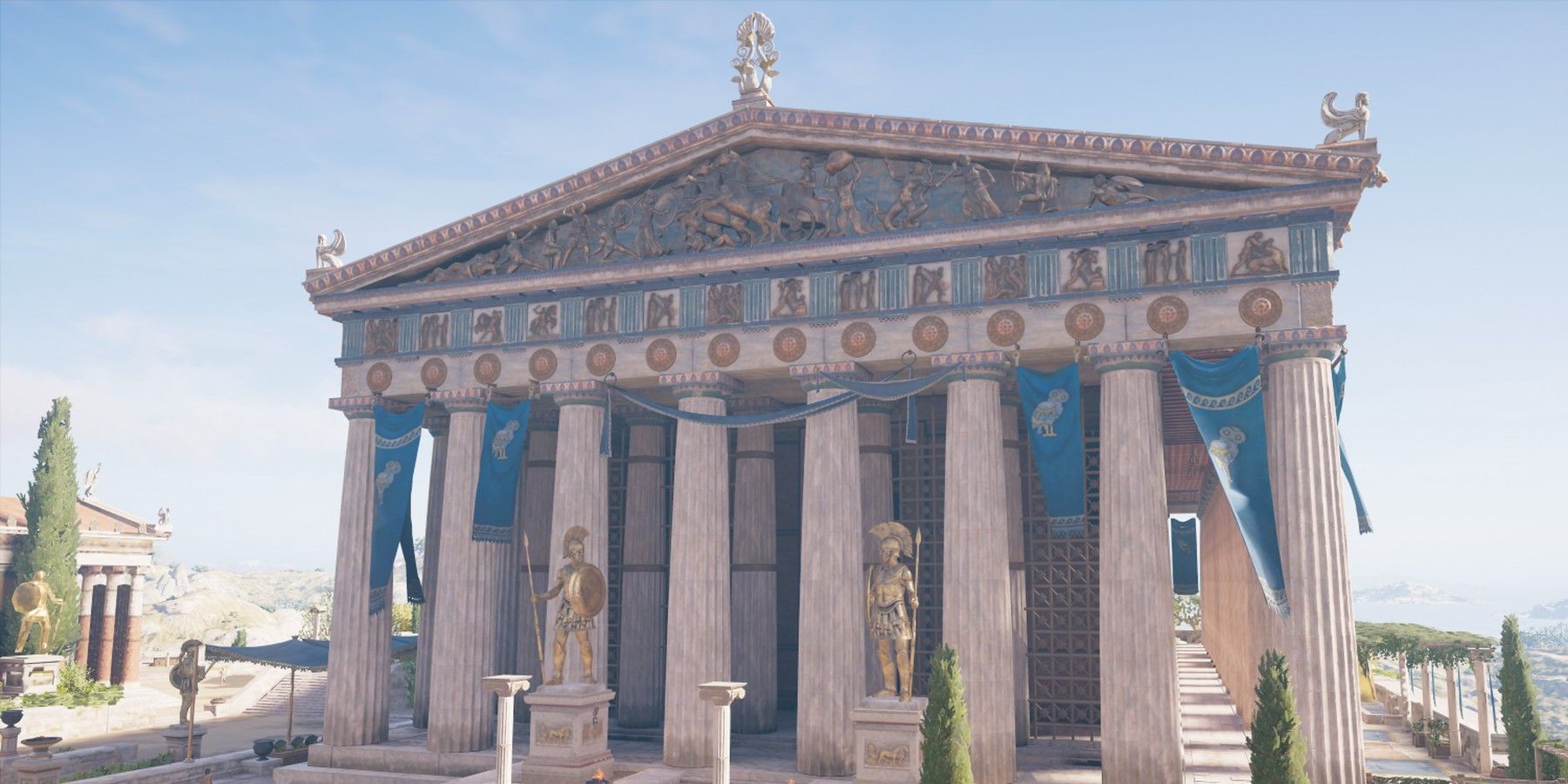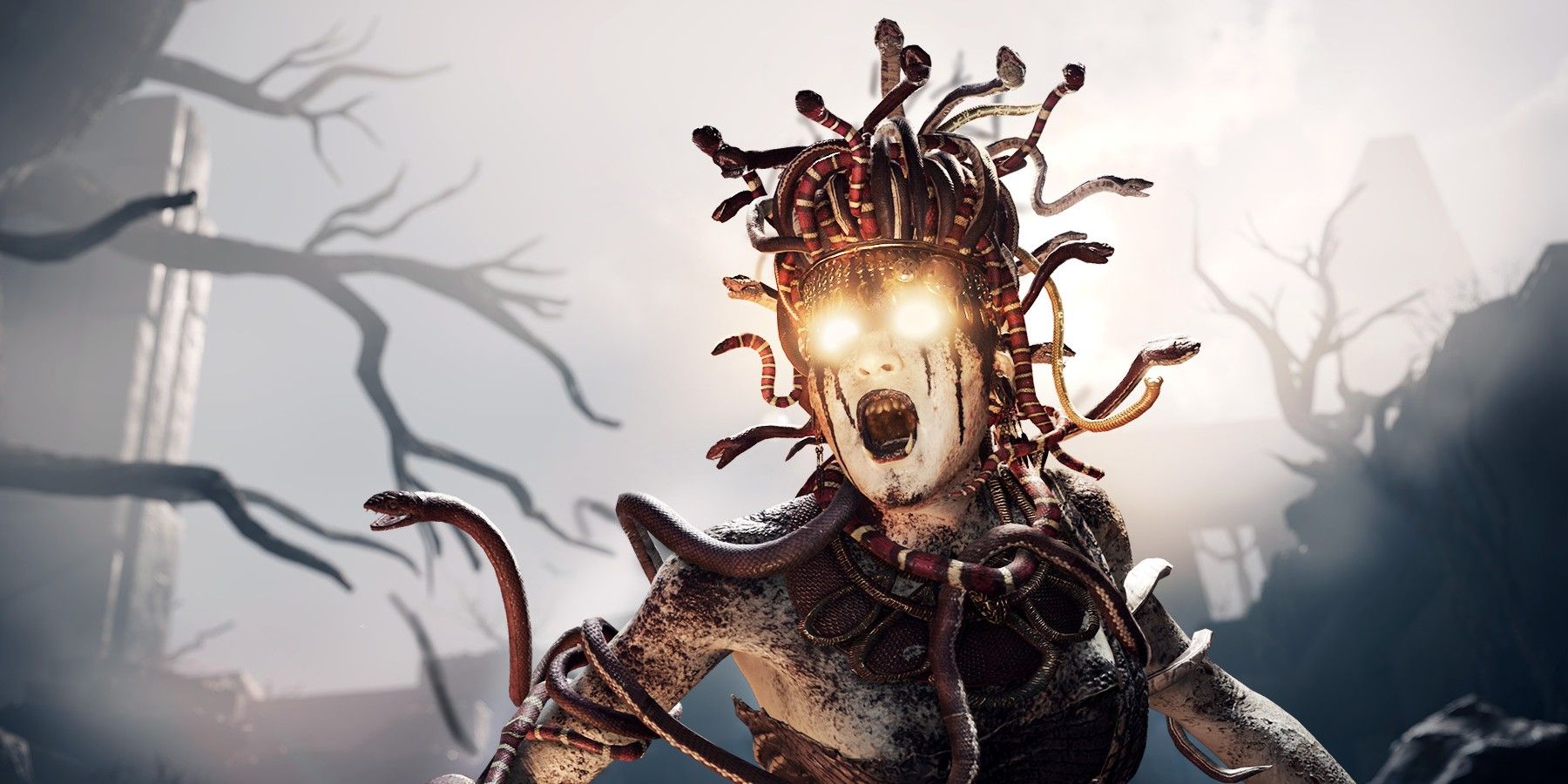Assassin's Creed Odyssey uses allusion, or references to historical or literary events or works, to enhance its storytelling and ground the narrative in a deeper, more robust background. The world of Ancient Greece itself is vast and full of war and politics, but Assassin's Creed Odyssey takes it a step further by incorporating Greek Mythology into the story as well.
One distinction that needs to be made is the difference between Allusion and Easter Eggs. Easter Eggs are usually references to another game either in a game's franchise or made by the same developer. For example, when one Assassin's Creed game references another in some way, this is an Easter Egg. An Allusion, however, is a more literary or historical reference. For example, when Skyrim mimics different aspects of World War 1, this is a complex and extensive Allusion. Halo's Forerunners and the Flood are Biblical and Christian references to Noah's Ark and the Great Flood that wipes out all life on Earth (similar to the Halo weapon). These are overt and direct Allusions to Literature, History, and Religion.
Historical Allusions in Assassin's Creed Odyssey
The Greek World in the early 400s BCE was riddled with corrupt politics, war between the Spartans and Athenians, and pirates looting and pillaging both sides as they please. Assassin's Creed Odyssey depicted the locations of these events beautifully, even giving players references to the historical sites that they are currently standing in. Everything from the battlefield of Thermopylai, where Leonidas stood his ground with 300 Spartan soldiers, to the bustling city of Athens, where politics and Democracy itself are being born in wondrous new ways, is shown off in vibrant colors.
These historical locations are not just given a quick banner notification style pop-up on screen that lets players know where they are standing. On top of this, Assassin's Creed Odyssey's Kassandra or Alexios will mention the place out loud and even give some detail about what happened there. When they get to the Battlefield of Thermopylai, for example, they recount a legend about how it is impossible to walk that battlefield without getting blood on one's shoes.
Literary Allusions in Assassin's Creed Odyssey
On the literary side, Assassin's Creed Odyssey draws much inspiration from Greek Mythology. Ubisoft's Immortals Fenyx Rising makes Greek Myth more approachable and accessible to players and uses humor to make the story more engaging and interesting. Assassin's Creed Odyssey, however, deals with the mythological tales and folklore from Ancient Greece in a tone that's closer to the source material.
For one, Assassin's Creed Odyssey has the player go up against four creatures that are straight out of Greek Mythology. They are the Cyclops, Minotaur, Medusa, and Sphinx. At the beginning of the game, the player travels to Ithaca to retrieve Penelope's Shroud from the famed Palace of Odysseus, which players will recognize as the hero from Homer's Odyssey. Mythological creatures are no stranger to the Assassin's Creed games, but they appear more frequently and function more effectively in AC Odyssey.
Unlike Assassin's Creed Valhalla's disjointed and seemingly random use of mythology, Assassin's Creed Odyssey's mythological storytelling is rooted in the narrative and often drives it in various directions. As Alexios or Kassandra, the player discovers hidden clues and secrets about the Cult of Kosmos and how it may all be connected to some ancient civilization that came before Homo Sapiens. As this is going on, players also come across real-life problems in the Greek World with the Peloponnesian War and other political issues going on in Sparta and Athens. On top of all of this, players experience the protagonist venturing around the lands that they heard stories about growing up - Odysseus's Ithaca, the Labyrinth of Messara, the tomb of Agamemnon, and many others.
Assassin's Creed Odyssey's protagonist is steeped in both Isu history and Greek history. Descendant from the great Leonidas of Sparta, Alexios and Kassandra find themselves caught in a war not just between two nations, but between two factions that would go on to become the Assassins and the Templars. Ubisoft sends players into a spiral of crisscrossing narratives and storylines that are riddled with Allusions and references that deepen the immersion into the game's world.
Assassin's Creed Odyssey is available on PC, PlayStation 4, Xbox One, Nintendo Switch, and Amazon Luna.



